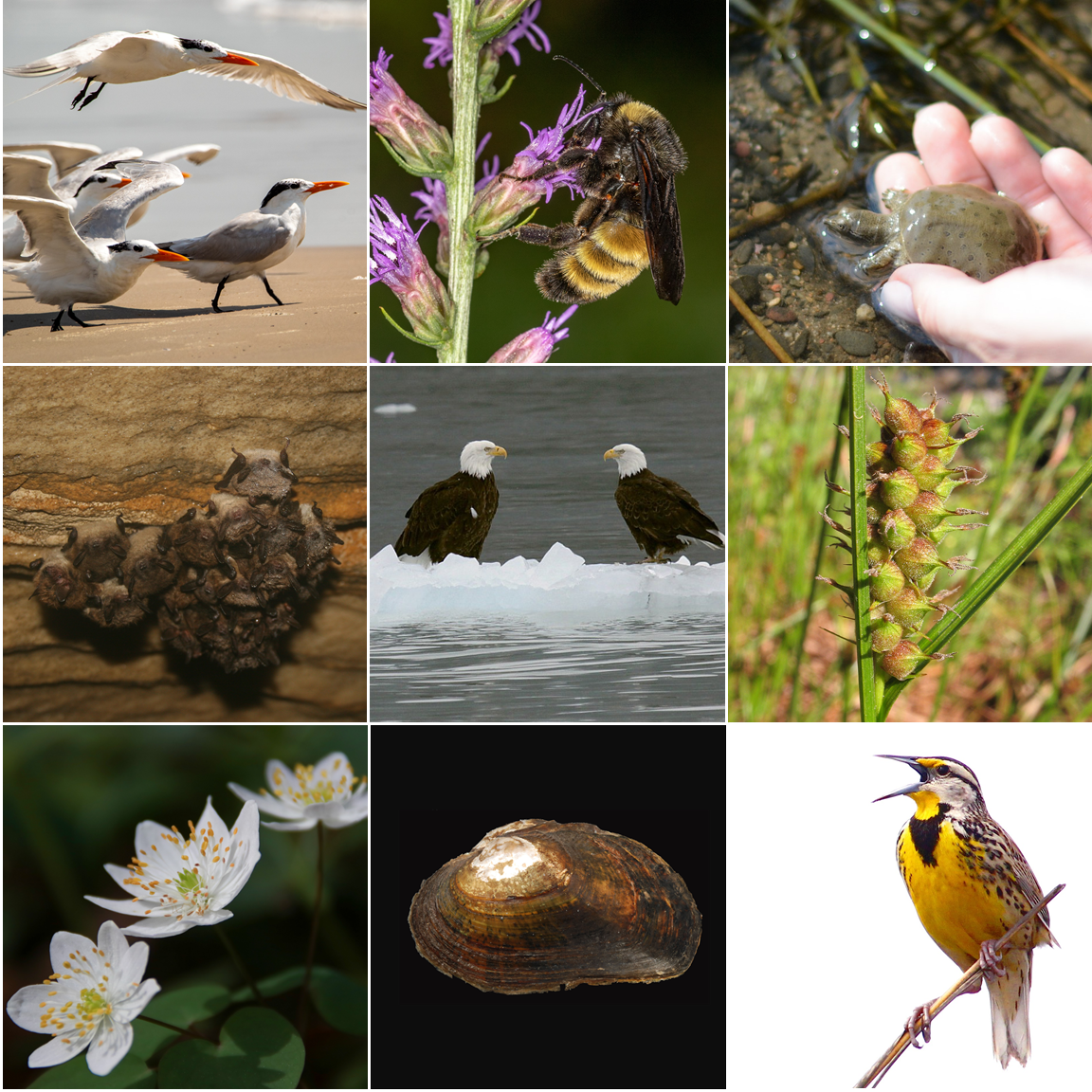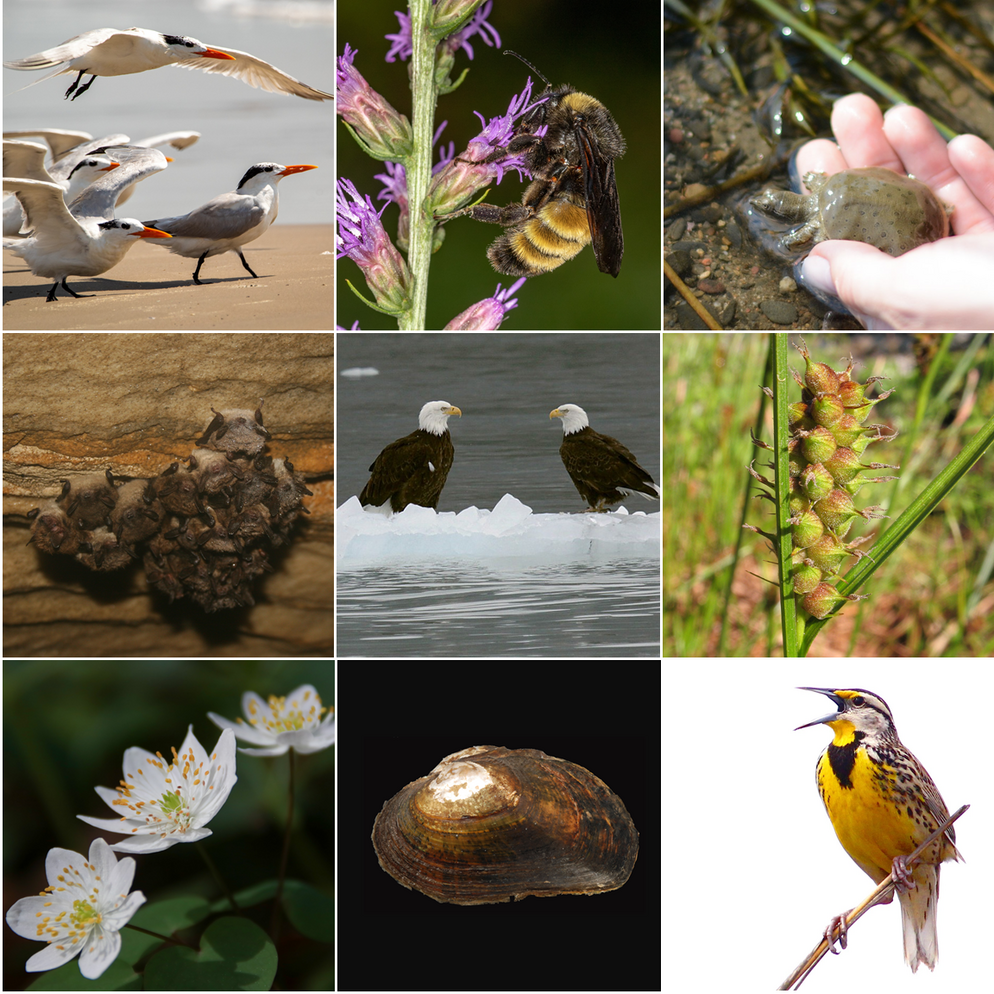This past February five species and three critical habitats were added to Vermont’s Threatened and Endangered Species list. From bat hibernacula to native pollinators with rapidly declining populations, these new listings highlight some of our state’s most pressing conservation challenges at a time of habitat loss and changing climate.
Learn what’s being done to conserve them. Join scientists from the Vermont Fish & Wildlife Department, Audubon Vermont, The Nature Conservancy, and Vermont Center for Ecostudies. Explore the ecology of the newly listed species, learn what “critical habitat” is and how it helps recover threatened or endangered species, and walk through some of the conservation steps we are taking—and how Vermonters can help.
Here are some resources our partners shared to keep you thinking about biodiversity.
About plants:
- Getting involved in the VT Fish and Wildlife department’s efforts to monitor rare plants with our partners at New England Native Plan Trust: https://www.nativeplanttrust.org/conservation/plant-conservation-volunteer-program/
- The department’s plant inventory program with a link to the rare plants reporting form: https://vtfishandwildlife.com/node/196
- The GoBotany key for plant identification, again from the Native Plant Trust: https://gobotany.nativeplanttrust.org/
About Birds:
- Check out Audubon VT’s page for opportunities to get involved with them on bird counts, outings, and educational opportunities: https://vt.audubon.org/
Thinking of starting in your garden? Check out this tool to find the best native plants for birds: https://www.audubon.org/native-plants
- Where to buy native plants in Vermont: https://vt.audubon.org/plants-birds/finding-native-plants-vermont
- Superstar Native Plants for Vermont: https://vt.audubon.org/plants-birds/superstar-native-plants-vermont
Thinking of birds and climate change?
- Priority Bird Monitoring and Management: https://vt.audubon.org/conservation/science
- Chimney Swift nest/roost site reporting: https://vt.audubon.org/swift
- Birds and climate: https://www.audubon.org/climate/survivalbydegrees
About Bees:
- Our species page for the American Bumble Bee: https://val.vtecostudies.org/projects/vtbees/bombus-pensylvanicus/
- Resources for pollinator gardens: https://val.vtecostudies.org/projects/vtbees/pollinator-habitat/
- Our project on iNaturalist: https://www.inaturalist.org/projects/vermont-wild-bee-survey
About Land:
- One of the most important pieces to tackle biodiversity is building the stage. The Nature Conservancy is working to find and conserve the most climate resilient places to help biodiversity. To learn more about this: https://www.nature.org/en-us/what-we-do/our-priorities/protect-water-and-land/land-and-water-stories/climate-resilient-network/ and https://www.nature.org/en-us/what-we-do/our-insights/perspectives/saving-future-stage-biodiversity-mark-anderson/
- Finally, check out our nature.org/vtevents to get outside with us, volunteer with us, or sign up for our newsletter.
If you want to donate to any of these organizations, feel free to follow the links below for support:
- Audubon: https://act.audubon.org/a/donate-vermont
- The Nature Conservancy Vermont: https://preserve.nature.org/page/80910/donate/1?supporter.appealCode=AVTMAONLN00W0XXX80&ea.profile.id=32600&crid=vermont
- Purchase a Habitat Stamp if you want to support habitat conservation to benefit rare plants and all the other life in VT: https://vtfishandwildlife.com/vthabitatstamp
- Vermont Center for Ecostudies: https://vtecostudies.org/give/






